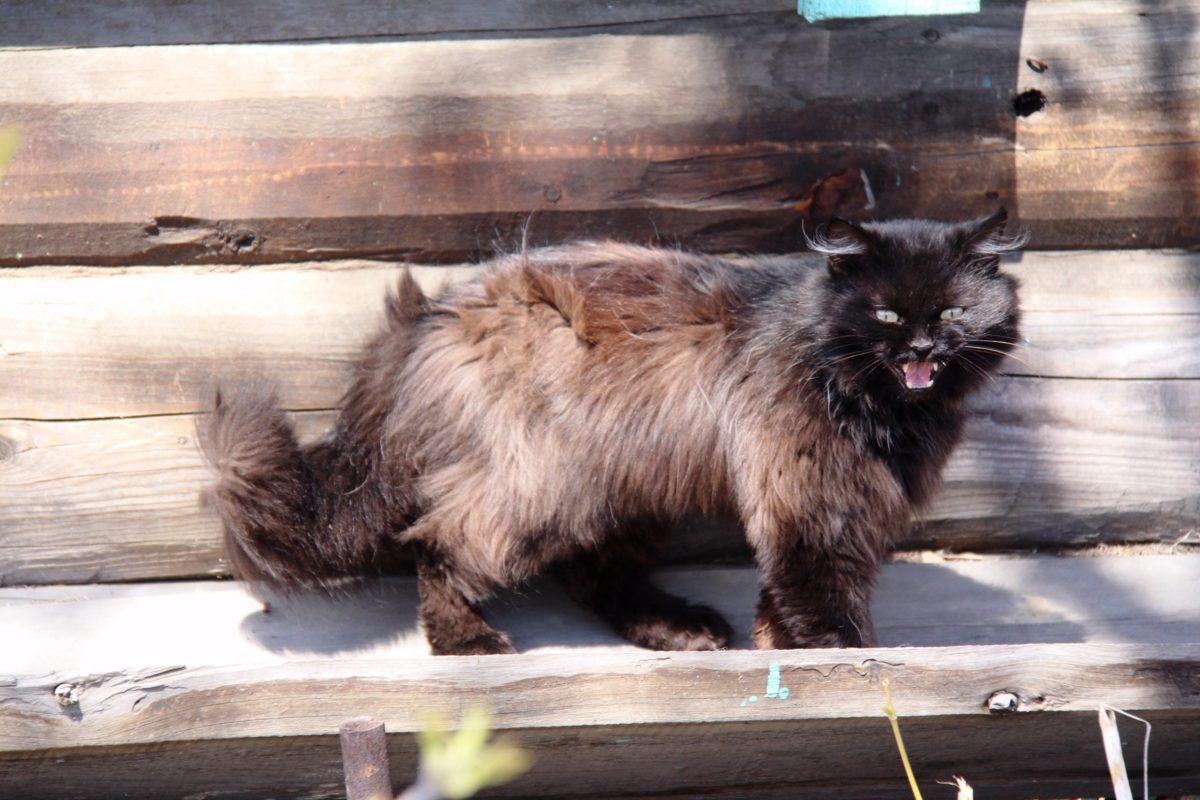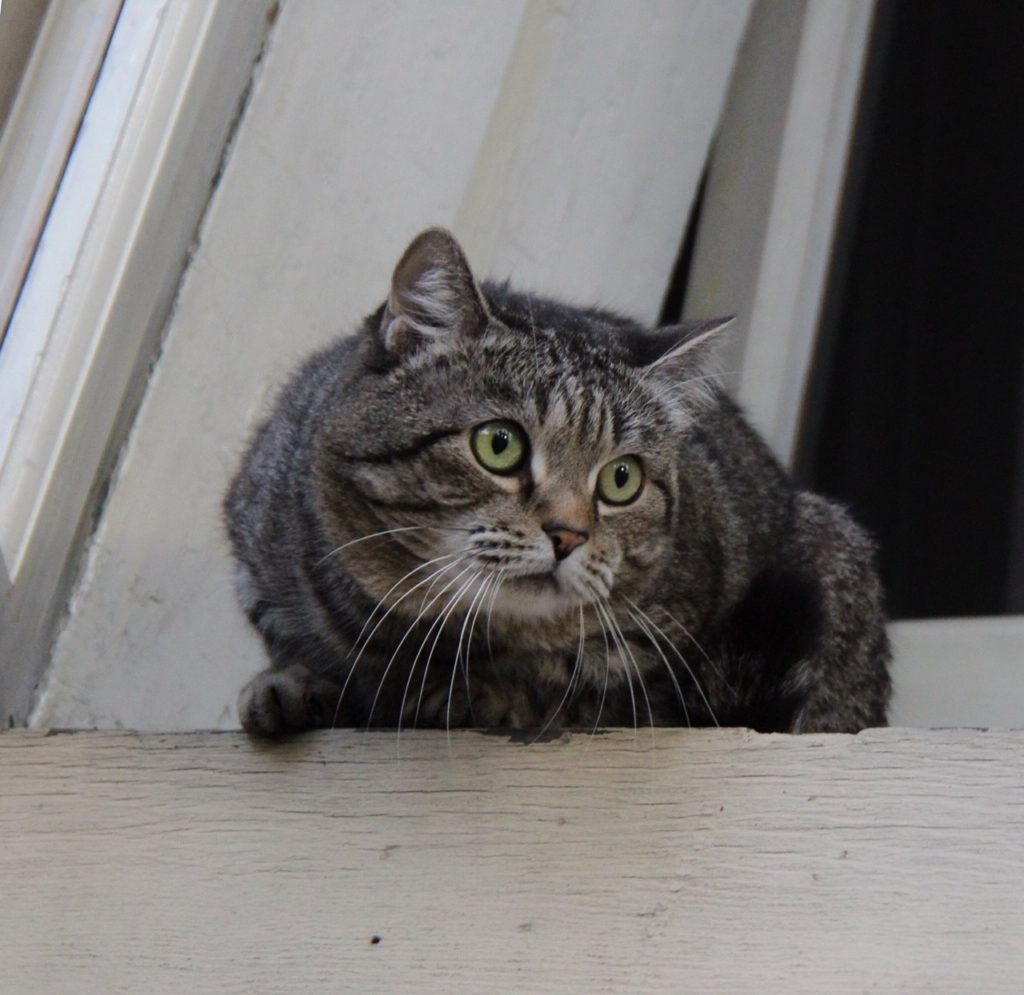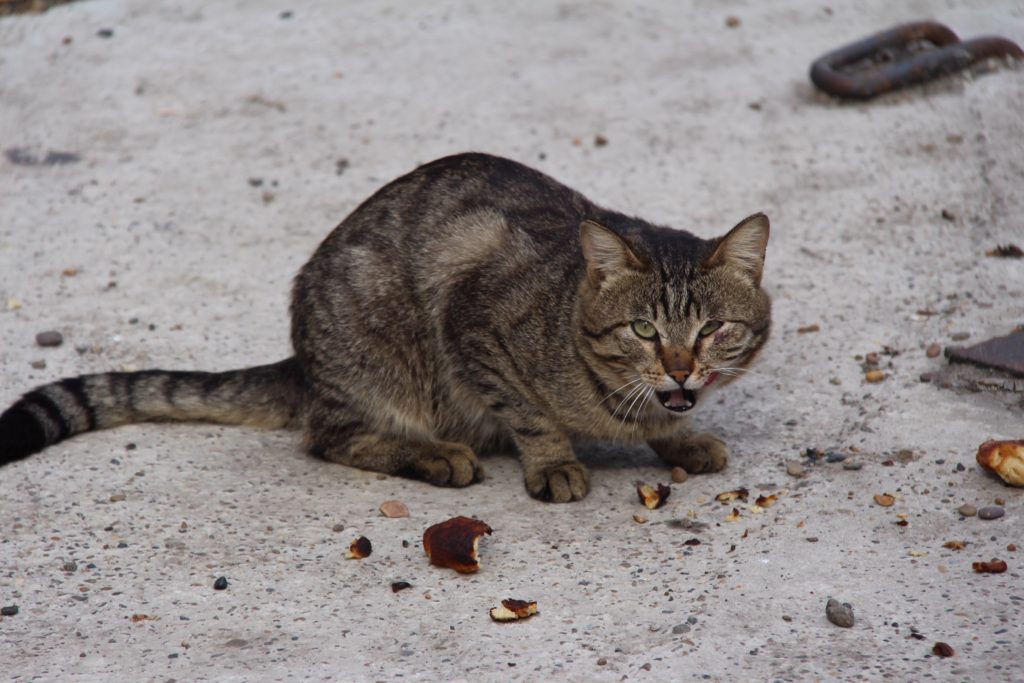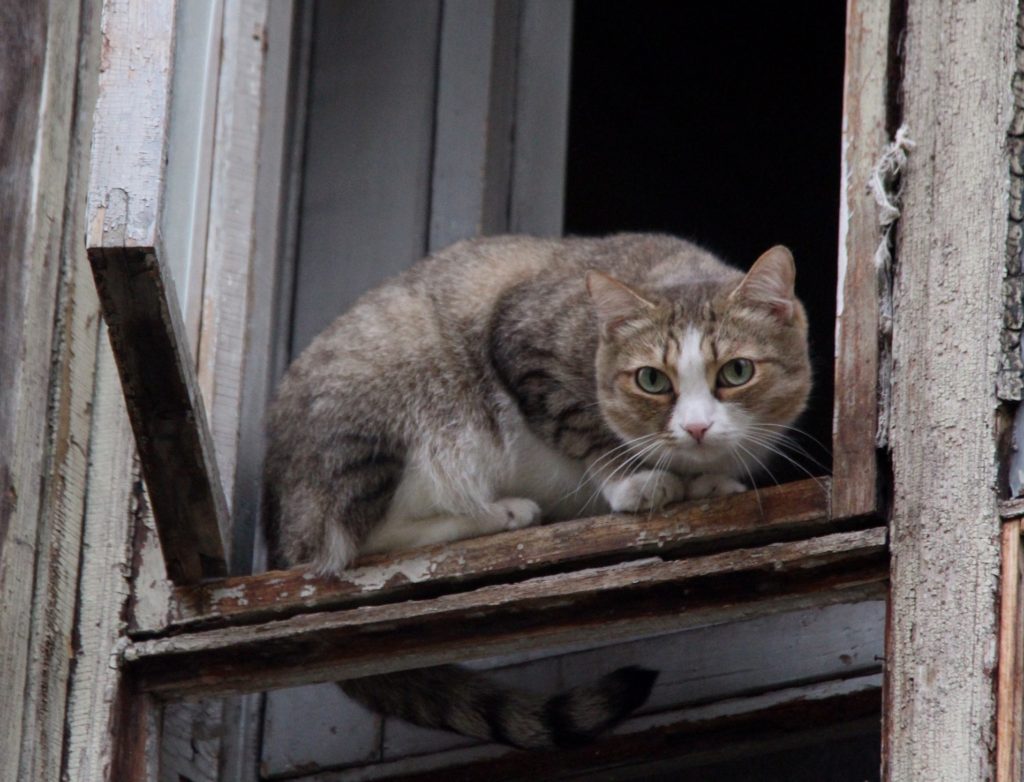
How to keep neighboring cats away from your cat – 14 top tips
We have one indoor cat and one outdoor cat. Our indoor cat has supervised outdoor times but our eldest cat, Misty, goes outside every day for her routine stroll. Most of the time, this is all ok. She does not wander far and is lucky enough to have a very large garden with many nooks and crannies for exploring. However, there are a few cats in the neighborhood – some domestic and a few feral cats. There has been a couple of instances when one of these neighboring or feral cats have come into our garden and been quite aggressive towards our Misty. Thankfully, she has always come back home but it is a worry that she may get so scared or injured that she would run away. Therefore, we have been looking into as many ways as possible to deter or prevent the other cats from coming into our garden. And so here are our top tips for keeping cats away from our cats and garden.

14 ways to keep neighboring cats away from your cat and garden
1. Cat proof fence
Using a cat proof fence to secure the garden will enable your cats to enjoy the outdoors and will prevent other cats from entering this space. It also has the bonus that your cat will not wander far away and hence increases their safety. There are many providers that sell and install this type of fencing. Essentially it is a system of high steel mesh fencing with a fence top barrier that fits around the perimeter of the garden. For a garden to be cat proof, every potential jump pad such as a window ledge or shed roof needs to be identified. Every small corners or space where a cat could escape needs to be secured. Many cat owners are now opting for such fencing systems in their gardens, but it must be remembered that the fence must be 100% cat proof to be effective. For very large gardens this option isn’t always practical and can be very expensive.
2. Prickly ground cover around the borders
Cats do not like a prickly surface underfoot. By placing prickly items around the perimeter of your garden it may deter neighboring cats from entering. It may even help deter your cat from venturing outside the garden too! The following items are great for creating prickly borders:
- Eggshells
- Twigs
- Pine cones
- Holly branches or rose bush clippings
- Chippings and small stones
- Chicken wire
- Plastic fencing
Ensure that it is a deterrent, and not a dangerous prickly item that could cause harm.
3. Deterring with scents
There are certain aromas that cats dislike and will stay well away from them. Given that a cat’s sense of smell is about 14 times stronger than a human’s they will most certainly be able to detect these on your property’s borders. Most cats dislike the following scents:
- Citrus smells. Try placing orange, lemon or lime peelings around the border. Citrus smells is an odor that cats particularly dislike.
- Planting certain strong smelling shrubs such as lavender, rue, lemon thyme and pennyroyal will not appeal to cats.
- Other odors that cats dislike are bananas, coffee, human hair. If there is a particular spot that the neighboring cat visiting or coming through, then these additional smell deterrents may help.
4. Eliminating any hunting opportunities
Although feral cats may still be hunting as a source of food, domesticated cats will still hunt to satisfy their hunting instincts. A bird table or presence of mice or rats is like a playground for the hunter kitty. Eliminating these hunting opportunities will reduce the hunting opportunities they may have in your garden.
5. Water sprinklers
Stray or neighboring cats can be reminded with a gentle squirting of water from a water sprayer that your garden is not a welcoming area for them. This simple act may be enough to deter them from returning. Water motion sprinklers are available too which are useful if you cannot be around all day.
6. Build or purchase a catio for your cat
Catios are cat enclosures for cats. They are great! They allow your cat to have access to outside time yet are entirely enclosed for safety. Catios can range from simple designs to larger, more complex structures. Your cat will still enjoy outside time and fresh air without any danger from a neighboring cat. Check out our article ‘What is a catio’ to read all about our catio build. Both our cats enjoy the catio. Our outdoor cat is only let out during the day as neighboring cats seem to visit more as dusk falls. Knowing they are both safe and sound throughout the night is a peace of mind. If you are not a fan of DIY then there are several companies who will design and build bespoke catios to suit your needs or there are ready made catios available on the market.

7. Ensure your cat has been spayed/neutered
Neighboring or feral cats may be approaching your cat as a potential partner. Ensure your cat has been spayed / neutered. Your veterinary will be able to advise further on this procedure.
8. Keep your cat indoors
The decision as to whether to have an indoor or outdoor cat is a contentious issue among cat owners. Although it is much easier for a cat to become an indoor cat from the early years it is not impossible to convert an outdoor cat to an indoor cat. Health, safety or various personal reasons may be factors in this decision. Keeping your cat indoors will ensure it will not be attacked by neighboring or feral cats.
9. Wash away any markings or urine left by the visiting cat
Cats depend on scent as a form of communication and therefore have a very well-developed sense of smell. These specific scents can last a long time and are unique to each cat. If unwanted cats visit your garden, try to identify it they like a particular spot. Then wash this area really well. Castile soap is excellent at removing odors and scents and is safe to use too.
10. Keep your cat’s food source indoors
Do not leave your cat’s food source outside. Feed your cat indoors in the safety of your house. Food is usually a key factor for a cat to approach another cat’s territory.

11. Shoo them away by shouting or clapping
If you happen to be around when neighboring cats approach your garden, or your cat, simply shooing them away or clapping will usually them away. Of course, this method relies on your presence to be effective but it certainly may make them a little less courageous about visiting your garden or approaching your cat in the future.
12. Deterring with sound
A cat’s sense of hearing is very sensitive and acute. They can hear sounds that humans cannot hear. Anything that makes a sound with motion such as wind chimes, or anything that rattles when cats approach may be enough to make them unsure of venturing further on. There are also devices that are activated by movement which then emit an ultrasound that only cats can hear.
13. Cover up any areas that the neighboring cat may be using as a litter box
If a cat decides that your garden is a great place to visit for their toileting needs, then it is likely that they will keep returning as they will be identifying their own unique scent. Cover up these areas and make them inaccessible.
14. Contact your local animal shelter for assistance with stray cats
If there is a continuing issue with stray cats in your area, do not hesitate to contact your local animal shelter for further guidance and assistance.

Some of the above methods are foolproof in protecting your cat, such as keeping indoors or a catio. Other methods are simply trial and error and may work for a short period of time only.
_______________________________________________________________________________________________________________________________
Other articles you may find of interest:
Can I train my cat to come home? 7 top tips!
Do indoor cats need outside time? Why does my cat refuse to go outside?
Should I let my cat outside at night? Indoor or outdoor cat?




